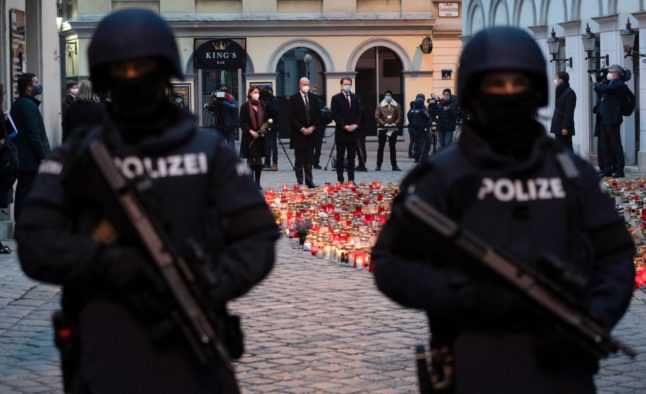After the 25-year-old man, named only as Adam A., was arrested for shoplifting last month police examined his mobile phone and found Islamic State (Isis) propaganda, videos of Isis beheadings, and instructions for making Molotov cocktail bombs.
The Russian national, who has Belgian connections, is suspected of having set up support operations for Isis, of downloading instructions for how to make a bomb, and of sending large sums of money abroad.
When detectives examined the computer belonging to Adam A. and his wife what they found was even more concerning. Investigators were able to read conversations the couple had had online, when Adam A. was living in Belgium.
The pair met online and began communicating almost exclusively via Skype. At some point the Chechen said that he wanted to plan a suicide attack in Austria, and suggested detonating a suicide belt at the Ministry of Defence.
Adam A.’s 36-year-old wife was arrested on Wednesday morning, as Austria celebrated its national holiday, on suspicion of belonging to terrorist group, prosecutor Erich Habitzl confirmed. Witnesses said she was still wearing a bathrobe when police led her away in handcuffs.
Lawyer Wolfgang Blaschitz, who is representing both suspects, said references to a suicide attack were just “stupid talk” and that they had both been drunk at the time. The judge reminded the woman that drunkenness was against her Muslim faith, and ordered that she be held in pretrial detention.
Austria has seen a wave of people – 260, according to the government, many of them minors and some young women – leave the country to join Isis in Syria and Iraq.
Some have since returned. Around 40 of these are in custody and more than 80 are under close surveillance, according to the interior ministry.
In July a Muslim preacher known as Ebu Tejma at the centre of an Austrian jihad propaganda network was sentenced to 20 years in jail for “brainwashing” dozens of young people as young as 14.



 Please whitelist us to continue reading.
Please whitelist us to continue reading.